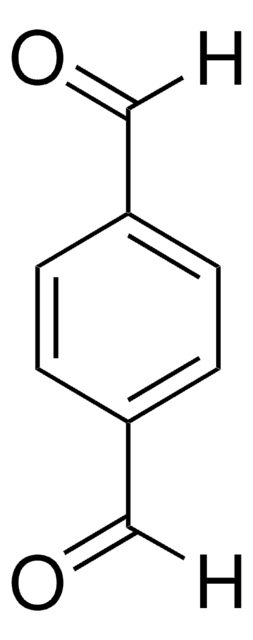49629
Glutaraldehyde solution
technical, ~50% in H2O (5.6 M)
Synonym(s):
Glutaric dialdehyde solution, Pentane-1,5-dial
About This Item
Recommended Products
grade
technical
Quality Level
form
liquid
concentration
~50% in H2O (5.6 M)
color
colorless
refractive index
n20/D 1.421
mp
-21 °C ((-6 °F))
solubility
water: soluble
SMILES string
[H]C(CCCC([H])=O)=O
InChI
1S/C5H8O2/c6-4-2-1-3-5-7/h4-5H,1-3H2
InChI key
SXRSQZLOMIGNAQ-UHFFFAOYSA-N
Looking for similar products? Visit Product Comparison Guide
Application
- Optical-transparent and flexible glucose sensor with ITO electrode.: This paper presents the design and testing of an innovative optical-transparent and flexible glucose sensor, which includes an Indium Tin Oxide (ITO) electrode, for enhanced performance and usability in medical diagnostics (Mitsubayashi K et al., 2003).
Caution
Other Notes
Signal Word
Danger
Hazard Statements
Precautionary Statements
Hazard Classifications
Acute Tox. 3 Inhalation - Acute Tox. 4 Oral - Aquatic Acute 1 - Aquatic Chronic 2 - Eye Dam. 1 - Resp. Sens. 1 - Skin Corr. 1B - Skin Sens. 1 - STOT SE 3
Target Organs
Respiratory system
Supplementary Hazards
Storage Class Code
6.1A - Combustible acute toxic Cat. 1 and 2 / very toxic hazardous materials
WGK
WGK 3
Flash Point(F)
Not applicable
Flash Point(C)
Not applicable
Choose from one of the most recent versions:
Already Own This Product?
Find documentation for the products that you have recently purchased in the Document Library.
Customers Also Viewed
Our team of scientists has experience in all areas of research including Life Science, Material Science, Chemical Synthesis, Chromatography, Analytical and many others.
Contact Technical Service






